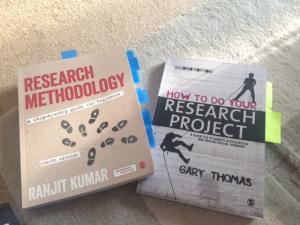Teaching in crisis the headlines scream. Teachers are leaving the UK to go and teach abroad. Teachers are stressed and struggle to find that illustrious work life balance. Great timing for me then to have to approach (with a lot of trepidation) 5 of my colleagues to work with my on my MA research project.
I know how precious their time is. I know how hard they work at our school so after asking if they would like to participate, I was extremely mindful that this project had to offer them something to warrant the investment of their most precious commodity – time. My colleagues, like myself, are reasonable people, we know that the best plans do not always come off but as long as the intentions were there and that everything that was promised in terms of training and support was delivered, that would be enough. I know you hear it a lot (especially in teaching) about the amazing people you get to work with, but I really do, there was no hesitation, they all agreed and after our initial training became excited by what the project could offer them as a training tool which could then benefit all of the students they teach.
Well, having just finished my research project into whether staff mindsets (for teaching literacy underachievers in Y7) can be changed through a mentoring relationship, I have to say firstly I am relieved (mentoring 5 members of staff, supportive observations and running additional training has been tough), but I am so pleased with what the findings have shown. The feedback is positive and I am especially pleased with how the staff have reflected on the importance of working together as a team as an intervention. Their comments indicate the difference that this has had on both their teaching as well as the impact it has had on the students we identified as needing some additional support. I can honestly say that my little research project has made a difference in the school where I work and as I sit here today this makes me proud to be a teacher and glad that I continued with my Masters.
What’s more refreshing has been the collegiate approach we took to tackling both a school CPD and a student issue. Together as staff we formed what could be described as a PLC where the six of us who work in cross-curricular subjects have shared this experience. A professional learning community (PLC) looks to include six elements: a focus on learning, a collaborative culture, collective inquiry into best practice, an action (learning by doing), a commitment to improvement and a focus on results. The power of this and the impact it has had has exceeded what I thought we could initially achieve. Looking through the staff’s reflections and their comments after this mentoring programme, it is clear for me to see that they have come out the other side of this research project with new weapons in their armour and new confidence in their teaching.
As I prepare to write up my findings I will be recommending that this style of CPD is a way of uniting teachers together at a time when many are feeling isolated. I know that this project may have only focussed on 5 teachers, but if it leaves 5 teachers feeling invigorated as one of my colleagues put it and excited again about the difference they are making to those who need it most, I’ll take it.

